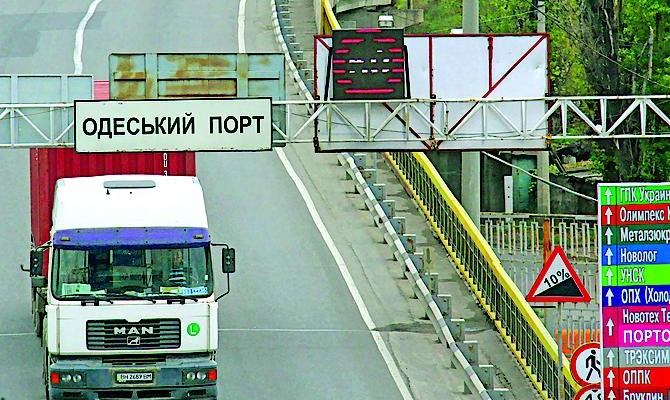Business
blockadeGrain exports blocked in sea ports

The export of grains and oilseeds has been blocked at the Odesa Commercial Sea Port due to frequent inspections conducted by government agencies, specifically representatives of the Prosecutor’s Office together with State Agricultural Inspection Bureau and with de jure eliminated the State Phytosanitary Service, according to the press release of the European Business Association (EBA). According to the EBA, almost all port and line elevators in the region are significantly delaying shipments or have been forced to stop their operations in connection with inspections conducted on the basis of Order No. 47 of September 23, 2014 issued by the Black Sea Transport Prosecutor’s Office. The Odesa Commercial Sea Port, Brooklyn-Kiev LLC, Olimpex Coupe International LLC and Ukrelevatorprom LLC have all been affected by the inspections.
Heart-cry
General Director of Brooklyn-Kiev Yuriy Hubankov, commenting on the situation for Capital, said such audits are some kind of a trick. Since the inspections of business entities have already been banned in our country, corrupt state organizations found a loophole through the prosecutor’s office: “Inspections of our company were groundless and they produced no results, but operating time was lost”. Head of the Logistics Department at Hermes-Trading Vyacheslav Sorokun confirms the presence of obstacles adding that a few weeks ago the Prosecutor General’s Office conducted similar inspections of the terminal of the TIS Company at the Pivdenniy Port and export consignments of his company were delayed for a day.
The fact of inspections was confirmed by Head of the Department of Plant Quarantine at the State Phytosanitary Service Vadym Tchaikovskiy, who also said that his department carries out inspections of elevators from which grains are being supplied to China.
Certificate
On condition of anonymity, a representative of a stevedoring company said that regulatory bodies have no more mechanisms of influence on the market after certification of grain quality were cancelled at the beginning of the year. As a result, he said inspectors toughened a once harmless procedure for obtaining phyto-sanitary certificates. The result is that ships with crop products are idle for 5 days, whereas in European ports ships spend only a few hours to obtain such a document. Meanwhile, the operators have to pay US $15,000 – 20,000 for each day of downtime.
The situation is aggravated by the fact that the State Phytosanitary Service lacks staff to inspect each farm shipping grains to exporters and traders and vehicles arrive at ports without quarantine certificates, says analyst at the Ukrainian Agrarian Association Marian Zablotskiy. On the approach to the ports they are stopped by the representatives of the State Phytosanitary Service and traffic police. Later, near the ports, shippers formalize the necessary documents for each consignment at companies close to officials for a certain payment – approximately UAH 30 for each ton of grains.
Chairman of the Supervisory Board of the Rambus Agricultural Company Oleksiy Havrylov says there is such a problem, particularly at the Pivdenniy Commercial Sea Port. As a result of the actions of the traffic police and the phytosanitary inspectors who check for the availability of quarantine certificate, deliveries of grain to ports by road have decreased 50% over the past two weeks.
“The problem may be resolved in the coming weeks, seeing as the government is considering abolishing quarantine certificates for grain. If the quarantine certificates are abolished, grain farmers will be able to transport their commodity to any region of Ukraine without obstacles,” predicts Zablotskiy.
The State Phytosanitary Service told Capital that the Ministry of Agrarian Policy has already created a special commission for the simplification of logistics. “We are currently actively working on deregulation,” the service assured.
Downtime
Other ports of Ukraine are also facing problems with cargo, say representatives of the Administration of Seaports of Ukraine (ASPU). First Deputy Chair of the ASPU Yuriy Vaskov says that at the moment in addition to inspections of grains there is a problem with the registration of container cargo. Vaskov says prior to the reloading of containers from sea transport to vehicles, they have to go through 7–10 inspections by different bodies, including the State Customs Service and the Phytosanitary Service.
“Due to this the country is losing traffic flows resulting in losses of tens of millions of hryvnia and ports and operators are becoming less competitive. Therefore, it is necessary to carry out certain deregulation and implement the European practice of cargo clearance, which takes much less time,” he says. First Deputy Minister of Infrastructure Oleksandr Malin said the ministry is currently drafting a bill that would limit the list of inspection agencies authorized to work in border and customs zones.







 of the agreement of syndication with Financial Times Limited are strictly prohibited. Use of materials which refers to France-Presse, Reuters, Interfax-Ukraine, Ukrainian News, UNIAN agencies is strictly prohibited. Materials marked
of the agreement of syndication with Financial Times Limited are strictly prohibited. Use of materials which refers to France-Presse, Reuters, Interfax-Ukraine, Ukrainian News, UNIAN agencies is strictly prohibited. Materials marked  are published as advertisements.
are published as advertisements.